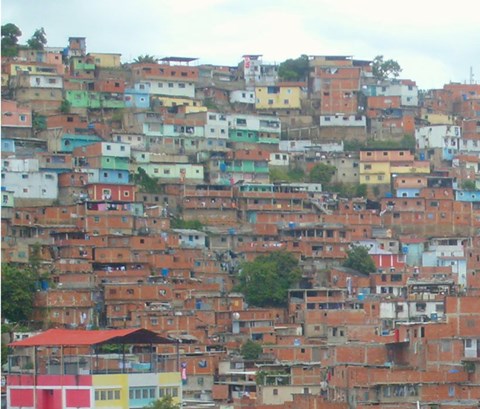
Research Centres
Centre for Critical and Creative Geographies
Our vision is to carry out research investigating, and exerting critical influence on, the formation of human identities, solidarities, inequities and experiences across rural and urban spaces and actions to mitigate and adapt to major contemporary challenges. These include transitions to multicultural, digitalised and net zero carbon societies, as well as adaptations to climate change and resource and nature depleted environments.
Our research employs creative methods to recognise people's affective engagements with space, place and environments, and how these connect to political governance and contestations. It also transgresses boundaries between science, social science and the humanities, through leading critical and creative engagements with environmental, health and computer sciences, including applications of artificial intelligence (AI), analytical modelling and earth observation (EO).
For further information about the Centre email Professor Martin Phillips (Director)
Research
Our research is focused around two thematic areas and two-cross cutting themes.
Geographies of living with change, loss and dying in an uneven world (thematic area)
Research examines how people, and other inhabitants of places across the world, find ways to live together and promote and respond to change, as well as experience social harms of prejudice, exclusion, injustice, inequalities, ill-health, and loss. Recent and ongoing research projects include studies of migration and mobility, rural and urban change, housing, and multiculturalism.
Environments, economies and justice (thematic area)
Research investigates environmental, social, political and economic change, and how these are lived with, contested and experienced by socially and geographically differentiated populations. Research includes studies of climate/energy/food transitions, environmental governance and nature conservation, rural landscape change and gentrification, net zero transitions, human and more-than-human relations, the Anthropocene, and the construction and impacts of diverse environmental knowledges and values.
Emotional, affective and creative everyday geographies (cross-cutting theme)
Cutting across the two thematic areas is research exploring affective and emotional engagements with rural and urban spaces, landscapes, heritages and natures, and their economic and political significance. This research frequently employs creative geohumanities and digital methods of research and engagement. Research projects include studies of the emotions of urban walking for migrants from the global south, emotions in caregiving, and affective engagements with rural villages and landscapes.
Digital geographies (cross-cutting theme)
This is a second cross-cutting research theme involving critical and methodological investigations of the digitalisation of social and environmental worlds, and their impacts on everyday life, health, knowledge construction and social and environmental (in)justice.
Research projects include examinations of everyday digital geographies, digital emotional geographies, smart cities and digitalisation in urban change, the social impacts of big data, AI and EO in digital agriculture and environmental management, and the impacts of digitalisation on knowledge production and learning.
Activities
Research in the Centre's thematic areas and cross-cutting themes has been supported through funding from a range of bodies including research councils (e.g. AHRC, ESRC, NERC, and GCRF), the Leverhulme Trust, and a range of charitable, educational, business and governmental organisations. Current and recent projects led by or involving Centre staff include:
- Beyond net-zero: Assessing and extending social and environmental understandings of wind power (Independent Social Research Foundation)
- Landscape decisions programme (UKRI)
- Mapping multiculture: disrupting representations of an ethnically diverse city (Leverhulme Trust)
- Refugees, social protection and digital technologies (British Academy)
- SOLiDi - solidarity in diversity (EU Marie Curie Innovative Training Network)